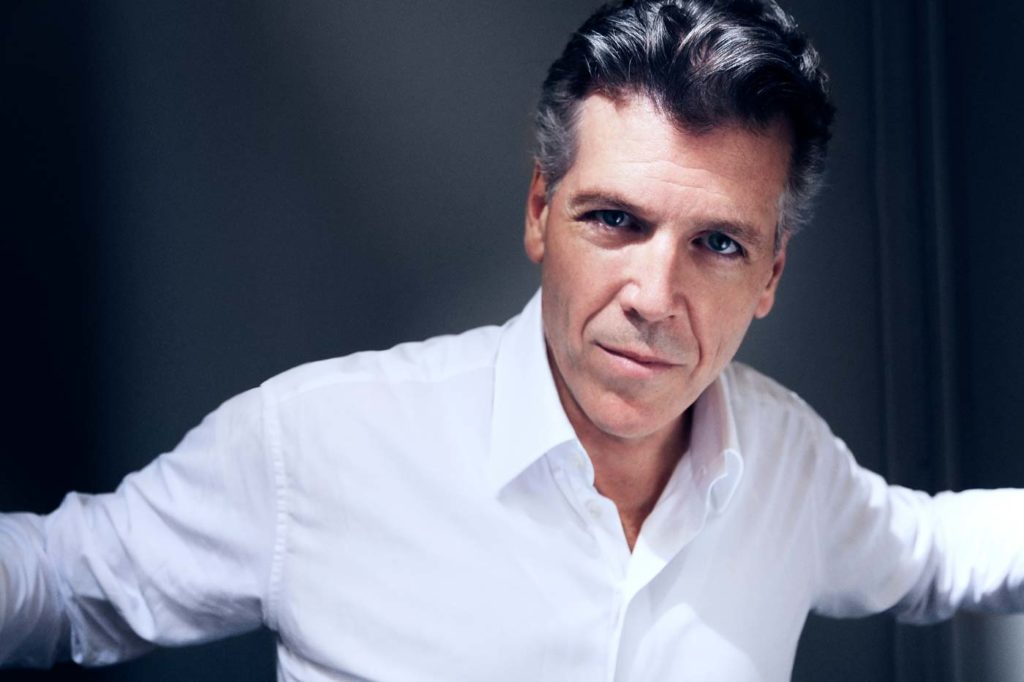Opera in the Time of COVID: Legendary American Baritone Thomas Hampson

“Opera in the Times of COVID” is an interview series in collaboration with photographer Frances Marshall of Marshall Light Studio. We talk to notable figures from around the opera world to get their perspective on how they feel these challenging times may change opera’s present and future.
Baritone Thomas Hampson is one of opera’s great baritones, an artistic with an elegant vocal style fused with a striking stage presence. The brilliance of his artistry is born out of his thoughtfulness and what seems like an infinite well of intellect. His interviews are some of the most fascinating learning experiences you can engage with.
In this interview, he relates his thoughts on the current crisis, his wide-ranging interests, and what he thinks comes next for the world.
OperaWire: What have you done during this time to keep yourself positive and productive?
Thomas Hampson: I have tried to realize this period as a kind of sabbatical, regardless that it was not of my choosing. There is always a lot to listen to and to read and study, and of course a house and a library to clean …
OW: What do you feel will be the greatest impacts of COVID-19 on the opera world moving forward? What are some new developments that you feel are here to stay?
TH: People are fearful of larger crowds, and that will take some time and trust to lessen. I am sure that we are not returning to business as usual, but I hope soon there can be a human personal dimension again to our performance world. Digital is very fine, is easily accessible, and is a wonderful enhancement to our lives, but it is NO REPLACEMENT for live ART.
OW: One of the major developments of this time are the emergence of streaming and connecting with fans and followers more directly via social media. How has this impacted your time in quarantine?
TH: I think the entire heightened digital awareness is the first effect, and some of it is quite positive. What effect that will have on production and performance standards in the future no one can know as of yet. There was already a quite extensive social media world, but now it is more accepted and will certainly have an impact on the industry.
I have been very active with my teaching and mentoring programs in Germany and the US, as well the “IDAGIO Live” platform that has just been launched in BETA, which includes some very fun chats with colleagues and deep dives into my favorite repertoire. All positive developments.
OW: What is an outcome of it that you didn’t expect?
TH: I am not surprised by any of the efforts that had to fill the vacuum left by the Virus.
OW: What do you enjoy most about this new development?
TH: Community, compassion, and awareness.
OW: What is something that makes you apprehensive about its sudden preponderance of streaming and in your view, is that even feasible for all parties (not only companies but artists) involved?
TH: I think there could be real concerns about the status quo business models. There needs to be an understanding that the fees of “pay for play” artists are part of the entire operating budget, and are not dismissible elective costs that are supposedly covered by a very outdated concept of “force majeure.”
The overriding concern for me is to ensure the value of the Arts in society, above and beyond the spontaneous entertainment value they may offer. The Arts are not an industry to be recovered, the Arts will always create an industry because the needs of its society demand it.
OW: What are you most excited about doing once the quarantine officially comes to an end and we are allowed to resume a “normal” life?
TH: Haircut, pedicure, massage, GOLF …! Missing all of those things and so much more.
OW: Who have been the people you have relied on most to help you through these challenging times?
My family and mostly my at-home partner= my wife Andrea!
OW: Most people in quarantine are actively engaging with the arts via either music, TV, film, reading, literature. Etc. What have you been watching or reading…
TH: Well, I have always been a great movie fan, so maybe that has been more intense. But I have also had time to expand my viewing, reading, and listening tastes.
My tastes are pretty eclectic, so I’m watching everything from murder mysteries and historical dramas, and am listening to country western music and indigenous folk roots music from across the world … you get the idea! I love variety and this has been a great opportunity to explore other genres of film and music.
Learning new software and reading new pieces of music can be very time intensive and that has been now possible for me during this time.
OW: Speaking more globally about the pandemic, what can the world learn about this experience? What do you hope to see from our leaders (political or even industry) in order to build a better future that enables us to better manage any similar type of situation?
TH: This is of course the most important question for us all. We will need to reform our sense of what me MUST have vs. what we can live with or without.
I am willing to forego traveling so much if there is an industry that will allow me not to do that. We should certainly find ourselves more passionate about the lives we lead, the water and food we consume, and what that means in a finite world of resources. We are a LOT of people on this planet that must cohabitate. Maybe this virus has made us all more aware of our interconnectivity, dependance, and vulnerability … TOGETHER. One can only hope.
Photo credit: Francis Marshall